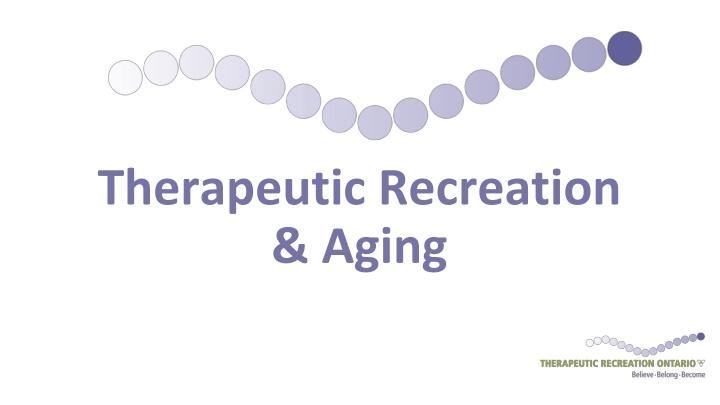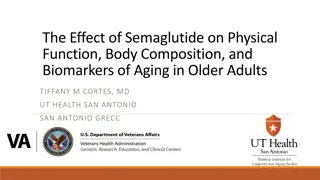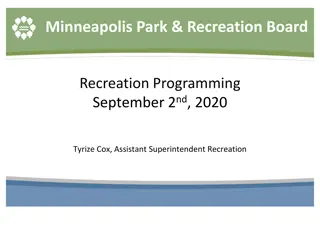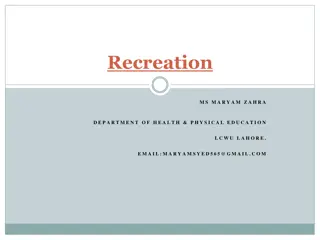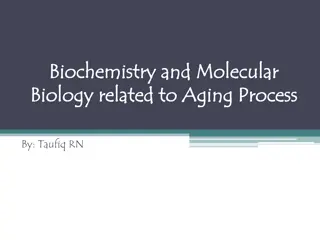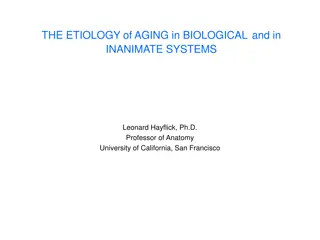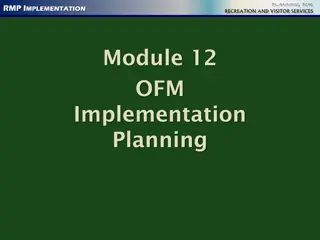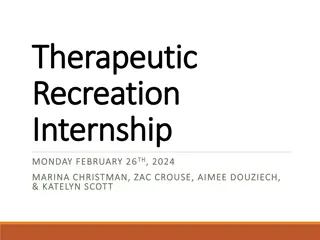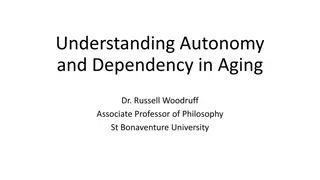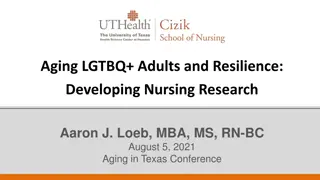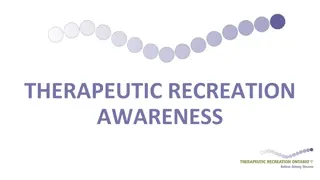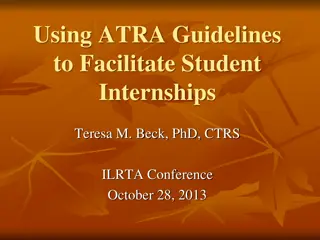Therapeutic Recreation Benefits for Aging Adults
Therapeutic recreation enhances physical and cognitive abilities in aging individuals through activities like light exercise, cognitive exercises, stimulation, and horticulture. Regular engagement offers long-term benefits such as strengthened muscles, improved cognitive health, better physical fitness, and contrast to environment, promoting overall well-being and community connectedness.
Download Presentation

Please find below an Image/Link to download the presentation.
The content on the website is provided AS IS for your information and personal use only. It may not be sold, licensed, or shared on other websites without obtaining consent from the author.If you encounter any issues during the download, it is possible that the publisher has removed the file from their server.
You are allowed to download the files provided on this website for personal or commercial use, subject to the condition that they are used lawfully. All files are the property of their respective owners.
The content on the website is provided AS IS for your information and personal use only. It may not be sold, licensed, or shared on other websites without obtaining consent from the author.
E N D
Presentation Transcript
Therapeutic Recreation & Aging
What is Therapeutic Recreation? Therapeutic recreation often allows clients to learn to live to the fullest recognizing their abilities. The therapy promotes physicality and assists older adults to explore, discover, or re-learn activities, focusing on what they can do rather than their limitations.
Therapeutic Recreation & Aging Therapeutic recreation can also help aging individuals maintain their existing physical and cognitive abilities. With these points in mind, therapeutic programs typically include: Light Exercise: Activities like swimming, walking or seated chair exercises help seniors improve mobility, joint flexibility, balance, agility and coordination. Low-impact exercise programs have also been known to benefit a range of conditions, including the management of hypertension, diabetes or osteoporosis. Cognitive Exercise: A range of activities can help improve or strengthen problem- solving, organizational skills and general mental agility. Therapeutic recreationists may implement activities like painting, sculpture, drawing, and board or trivia games to stimulate creative thought processes, while engaging fine motor skills. Stimulation: Certain activities, such as music therapy and aromatherapy, are known to calm older adults living with dementia. These activities stimulate the senses and are designed to allow clients to relax or relive specific memories. Horticulture: Older adults may enjoy tending to a garden, perhaps growing fruits, vegetables or flowers. In the process of engaging fine motor skills, they also get to spend time in nature.
Therapeutic Recreation & Aging Regular engagement in therapeutic recreation offers several long-term benefits: Strengthened Muscles: In conjunction with occupational and physical therapy, therapeutic recreation works to strengthen muscles following a health event. Long-term, stronger muscles help reduce the incidence of fall injuries and may help stave off osteoporosis. Improved Cognitive Health: Studies have shown that clients living with Alzheimer s are less likely to engage in dementia-related behaviors, display a more positive mood and tend to be more alert following therapeutic activities. Better Physical Fitness: Especially after engaging in light physical activity, older adults have improved cardiovascular fitness, flexibility and lower blood pressure. Contrast to Environment: Therapeutic recreation offers some respite outside of the typical long-term care setting. Because most activities are group-based, they further create a sense of community among seniors, helping to reduce feelings of frustration, depression, isolation and anxiety that are common in older adults.
